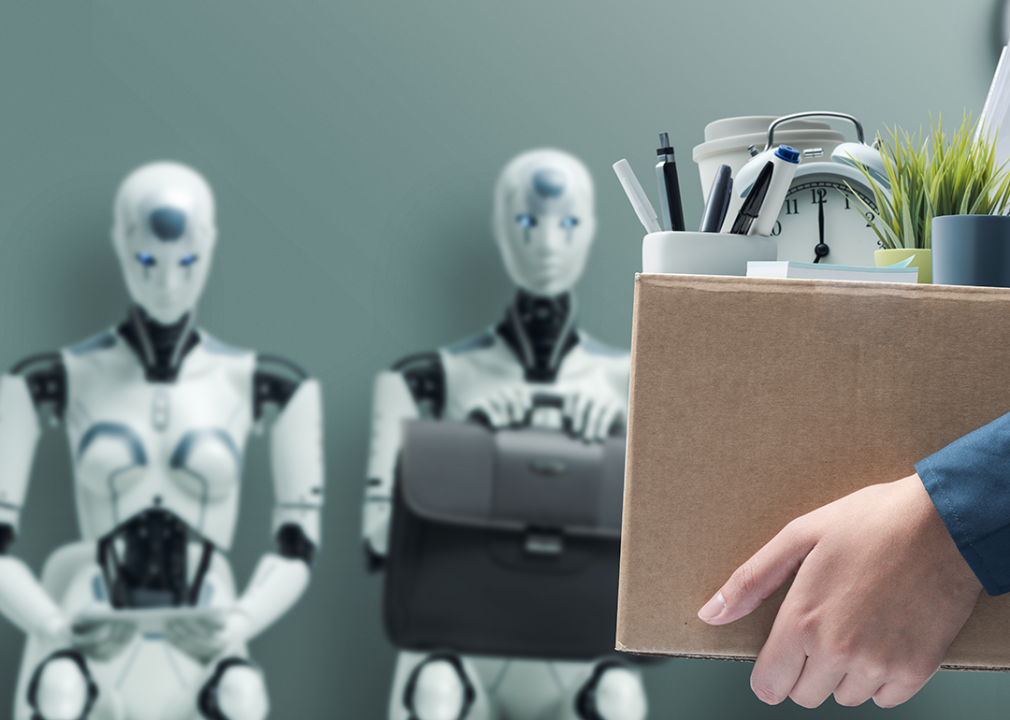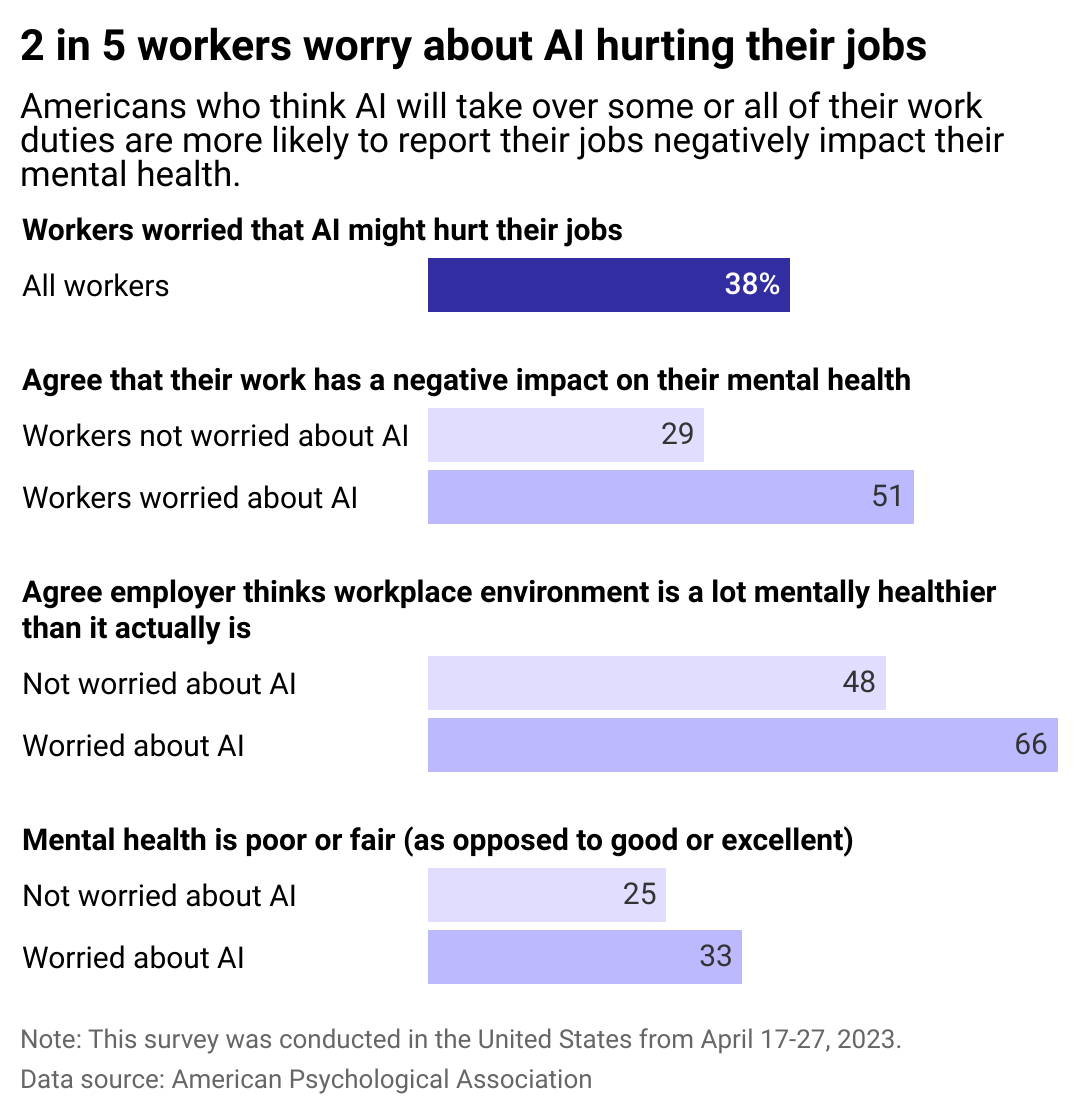How worried are workers about AI?

Stokkete // Shutterstock
How worried are workers about AI?
Close up of hands holding a cardboard box full of office supplies with two robots in the background appearing to look like they are waiting for a job interview.
The highly publicized push to adopt more artificial intelligence tools across the U.S. workforce is beginning to have a real psychological impact on workers, new research shows.
Wysa visualized data from an American Psychological Association 2023 survey to show how many workers are worried about AI impacting their jobs and how it is affecting their health.
Recent reports from organizations trying to assess the looming impact of AI job displacement have produced a wide range of estimates. In March 2023, Goldman Sachs analysts estimated AI could replace a quarter of all existing jobs.
Consulting firm McKinsey estimated it could replace 30% of the typical workers’ work hours by 2030. The firm sees the trend hitting office support staff, food service workers, and production workers hardest. Still, it expects that careers in STEM and other previously lucrative industries will also see significant impacts.
Outplacement services firm Challenger, Gray, and Christmas says jobs data suggests AI-attributed layoffs in 2023 only accounted for 0.5% of all cuts. That’s despite headlines in which large tech company CEOs positioned cuts last year as preparation for automation to replace those workers.
In this environment where companies seem outwardly enthusiastic about supplanting human labor with automation, 38% of workers report feeling the stress of having their income threatened by AI software, according to the American Psychological Association survey.
![]()

Wysa
Anxiety abounds as AI advances
A bar chart showing how stressed workers are at their jobs, based on whether or not they are worried about AI. 38% of American workers fear that AI will take at least part of their jobs. Workers who say they are worried about AI are also more likely to say that their jobs have a negative impact on their mental health.
Where workers are worried about the impact of AI on their jobs, a majority of workers polled by the APA say those concerns negatively impact their mental health. Further, 1 in 3 that reported being worried about the technology describe their mental health as less than good.
Even though AI might be a way off from taking a significant portion of professional desk jobs, the advancements of late appear to be already taking a toll on the mental health of the nation’s workforce.
Job instability has been shown in studies to have a tangible effect on people’s anxiety levels as well as how they perform in their jobs. The tendrils of job insecurity can also dig so deep into the psyche that studies have shown its impact to be about on par with the negative health effects of not having a job despite wanting one.
When someone feels insecure in their employment, they might not perform as well or as productively, according to the World Health Organization. Insecurity can also be a factor working against staff retention and solving social tension in the workplace.
The APA polling reveals a potential disconnect between workers worried about AI and their bosses. Less than half of workers not concerned about AI say their bosses perceive mental health in the workplace as better than it truly is for the worker, whereas two-thirds of those stressed about AI say the same.
Story editing by Ashleigh Graf. Copy editing by Kristen Wegrzyn.
This story originally appeared on Wysa and was produced and
distributed in partnership with Stacker Studio.
